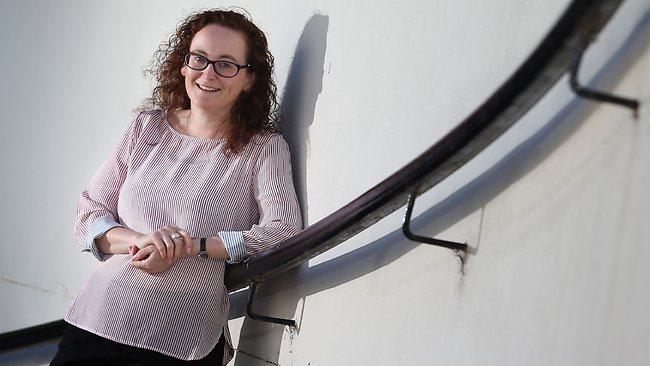All abroad for soft skill edge
THE real career bonus of study abroad may be growing up fast and learning how to get on with different kinds of people.

MASTERING the Spanish subjunctive or Japan's tea ceremony may not get you a job. In fact, the real career bonus of study abroad may be growing up fast and learning how to get on with different kinds of people.
This is a key finding of research by student mobility expert Davina Potts, who takes up a new post next month as director of international relations at the Australian National University.
In her survey, she asked more than 200 Australian graduates three years into the workforce about the study abroad they did between 2007 and 2009.
They prized it - not for immediate relevance to career, but for maturity and communication skills. And those qualities may have helped them into their first job, even if the employer wasn't much impressed by language skills or cultural know-how.
"If this (overseas study) experience is giving them independence and maturity and confidence in their own decision-making, and making them more critical thinkers in the workplace, then that's exactly what the employment sector is asking us to produce from our graduates," says Ms Potts.
She says a graduate with specific skills from an experience in Japan today may join an international company with no dealings in that country, but with plenty of use for generic, soft skills derived from study abroad. And these skills may also be useful for a business focused on Australia's domestic, often multicultural, markets.
In fact, viewing home with the fresh eyes of a returnee was one of the benefits most valued by this group of graduates.
So Ms Potts is wary of any simple sales pitch that study abroad is a job winner, especially any message those who return from an Asian destination will bring back bankable skills available nowhere else.
On Monday, peak body Universities Australia launched its World Class campaign to boost study abroad. A $3 million legacy of Labor's AsiaBound grant scheme and commissioned last year, the campaign now features the Coalition's New Colombo Plan.
But it works either way, says UA's chief executive Belinda Robinson, because it's an attempt to cultivate a general interest in outward mobility. "Our hunch was (many) students didn't really understand or weren't aware of the programs and funding support available to them," she said.
"And this is not just about New Colombo; universities themselves run a whole bunch of outward mobility programs."
Research confirmed student confusion about the options.
It also points out that students of the Facebook generation turn to one another for tips, and so a new website offers, and solicits, stories of study abroad with the idea that they will be shared.
The research also charts an intriguing gap in the student imagination. "Whilst students could easily refer to the iconic images of Europe, North and South America at a macro level, the vast majority had great difficulty identifying iconic Asian places and landscapes," it says.
"Instead they tended to adopt a more micro-level view based around people and lifestyle (for example, markets, hawkers, bicycles)."
About 13 per cent of graduates emerged last year with some kind of international study experience behind them. Asia has been a fast-growing choice for short-term study, but well-established destinations such as the US and Britain still dominate longer stays.
In the Potts survey, a quarter of the graduates had taken more than one study tour during their undergraduate period.
"For the second time abroad, participants were more likely to undertake study modes (including internships and volunteering) different to the traditional exchange model," Ms Potts says.
"They were also more likely to go to Asia, more likely to study for a short duration and more likely to study in a language other than English."
Ms Potts acknowledges that her group was privileged: many came from families better off than average and were well travelled before university.
She can see a divide between these sophisticated consumers of overseas experiences and those students who are the first in their family to reach university and have not yet left Australia.
"I think all students can benefit from (study abroad)," she says. "On a policy level, I think there are some real access questions about how we're matching up mobility targets with access targets for higher education," she says.
Foreign Minister Julie Bishop hopes the internships of the New Colombo Plan will give study abroad a keener relevance for career and therefore wider appeal among the student body.
Ms Potts, who worked in student mobility at Macquarie University in the early 2000s and is returning to Australia after stints in Chile, the US and Italy, believes that things are indeed changing here.
"It's not where Europe is. In Europe, it's a baseline - if you haven't been abroad, employers ask why you didn't go," she says.
"We're not there yet, but I think it's becoming clearer for both students and employers why (study abroad) is something important. I think mobility is becoming more embedded in generic skills development of graduates."


